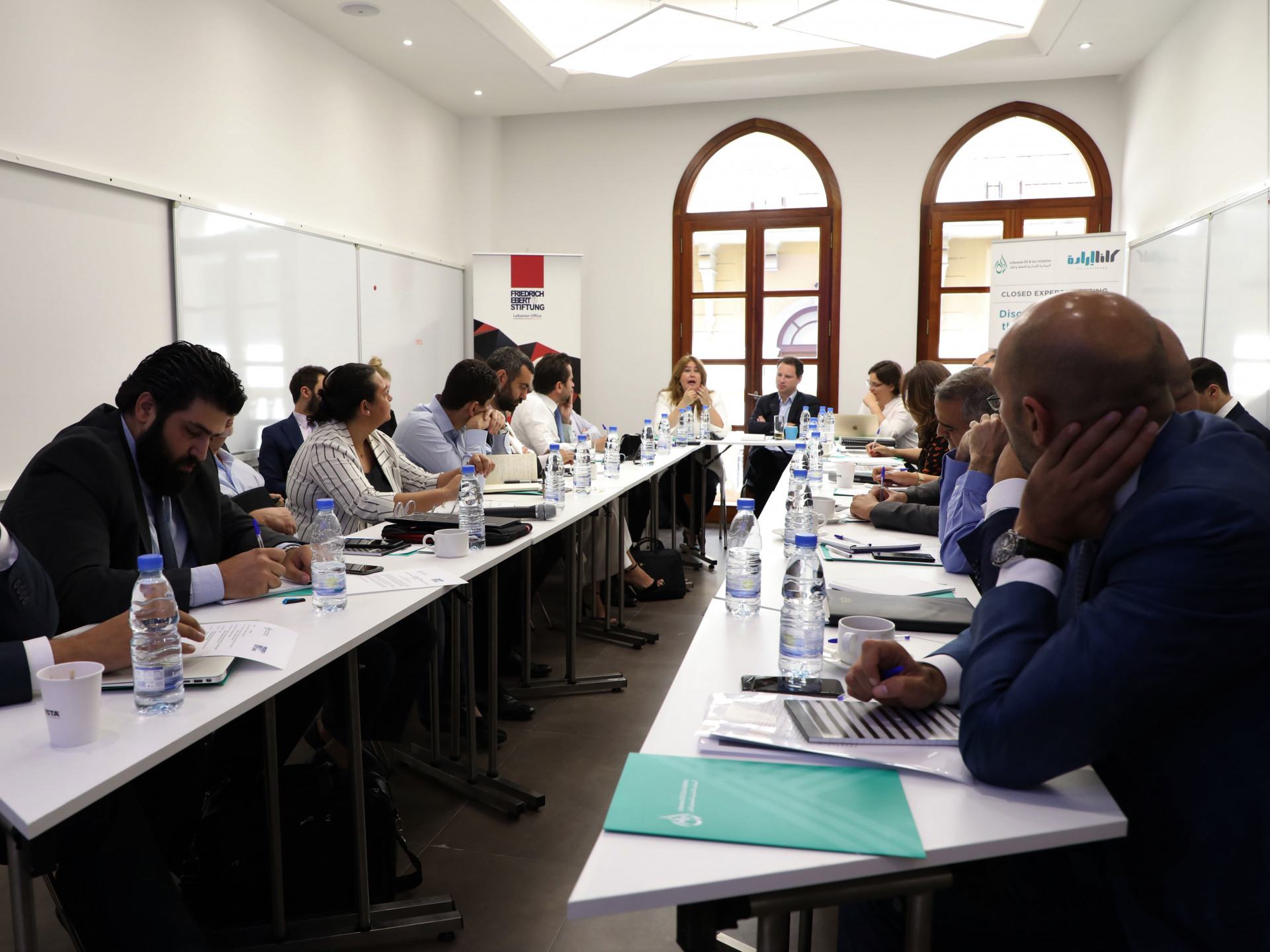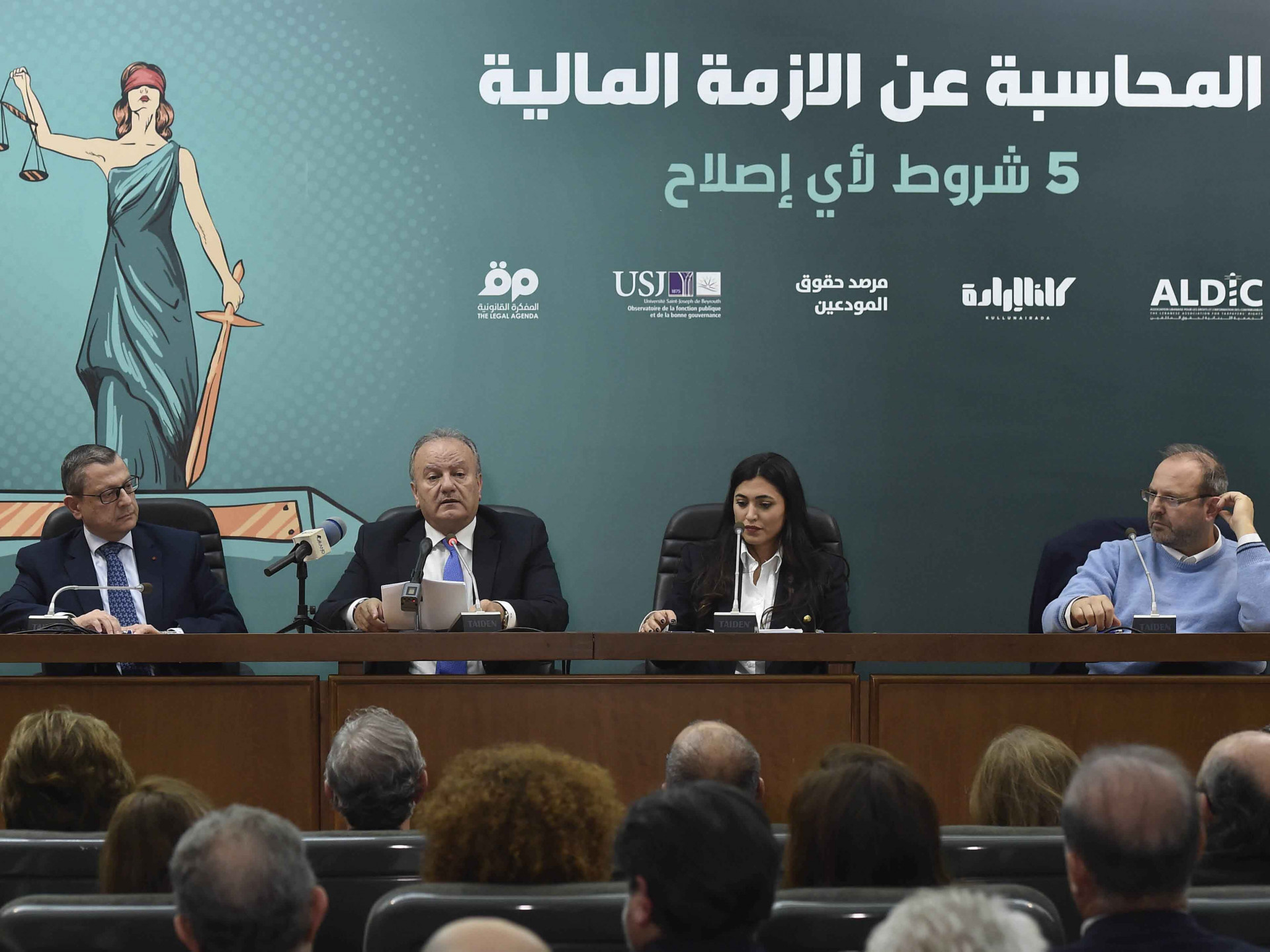Discussions Around the Establishment of a Sovereign Wealth Fund for Lebanon
Beirut, Lebanon- Experts’ studies show that it will take as much as 10 years to begin generating revenues from the oil and gas sector, if we make commercial discoveries. In this context, a closed experts meeting organized by Kulluna Irada and the Lebanese Oil and Gas Initiative (LOGI) discussed, under the Chatham House Rule, the Establishment of a Sovereign Wealth Fund (SWF) for Lebanon.
The meeting, held on July 4 at the Friedrich Ebert Stiftung offices in Beirut, gathered experts from the oil and gas sector, lawyers, bankers, and economists to tackle the prominent issue of the proposed SWF Laws. Discussions were facilitated by expert on natural resource revenue management at the Natural Resource Governance Institute, and international public finance expert, Andrew Bauer, who had previously published a 2017 report on the SWF proposal.
In general, a SWF is defined as a state-owned extra-budgetary fund that serves macroeconomic purposes and invests partially in foreign assets. Funds can be used to save natural resource revenues for the future, preserve revenues in good times to be spent in bad times, and earmark funds for specific expenditures such as education or healthcare. Consequently, a SWF could be considered as a savior to Lebanon’s low-economic growth by sustainably investing potential revenues from the highly acclaimed oil and gas sector.
However, the uncertainty of the revenues from oil and gas presents a dangerous threat. Indeed, while misleading information estimate that revenues from oil and gas could range between USD 250 and 600 million, many concerns still reside around the ownership and size of the offshore as well as the value of the volumes to be extracted, and the form and chemical makeup of the resources. All these factors indicate the hazardous nature of relying on the revenues of the oil and gas sector to generate growth, a strategy highly adopted by policy-makers. Thus, participants evoked the possibility of leaving oil in the ground in order to avoid exploiting it to cover for debt accumulation and mismanagement of current resources.
“It’s important to manage our expectations from the potential but uncertain revenues of this sector”, stated one of the experts. Indeed, as previous experiences have shown, many countries tend to mismanage their newly discovered non-renewable assets and succumb to the resource or pre-source curse, whereby high expectations on a sector that may not yet be proven leads to suboptimal behavior, such as overspending. Lebanon’s initial conditions of bad governance, low growth, political and economic volatility, and a precarious financial situation assert the need for resource management.
While the Lebanese Petroleum Administration (LPA) is trying to manage expectations from the oil and gas revenues, they highlight the cruciality of starting the drilling process since exploitation of these resources can only last up to 50 years.
“We should talk fiscal rules before talking about the Sovereign Wealth Fund” indicated an expert to emphasize on the urgent need for fiscal reforms.
“A good exercise is to place the SWF laws in parallel with the Santiago Principles and determine which kind of fiscal rules we need to include”, they added.
Ahead of the draft of a new third law on a SWF, discussions criticized the previous ones, drafted by politicians with no expertise in the matter; while embracing the need of a new objective law that sustainably manages oil and gas and acknowledges their role as a resource for the upcoming generations.
On the other hand, based on the McKinsey report, developing a clear and consistent strategy for a SWF needs a strategic analysis of certain topics, including optimal usage of oil and gas resources between local and external, and their impact on the industrial sector like the improvement of the power sector. “We need sufficient investment revenues other than the power sector” asserted an attendee.
As for money management of the revenues, options included investing a part abroad for future generations and another part locally to diversify the economy and develop other sectors in Lebanon.
Nevertheless, concerns were raised on the environmental impact of exploiting oil and gas, which could range from a small-scale pollution to an environmental disaster.
Discussions concluded on the need of establishing a fund while coming up with a set of principles and circulating them. Moreover, experts agreed on drafting a policy brief containing key recommendations deducted from the experts meeting, to use as a starting point for future discussions.





